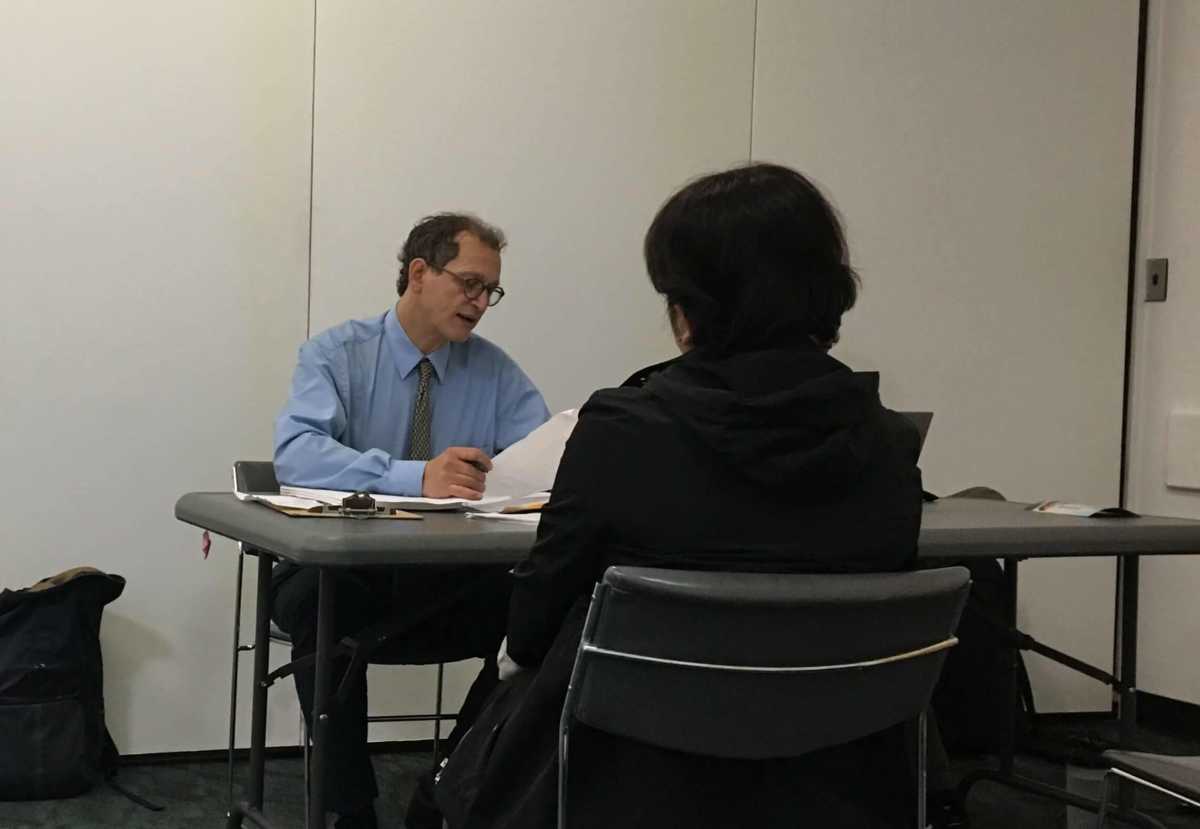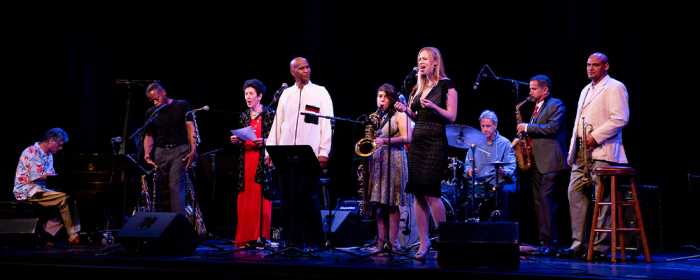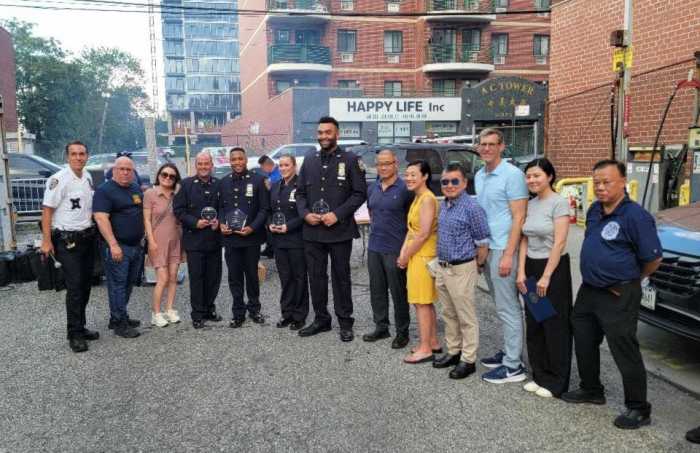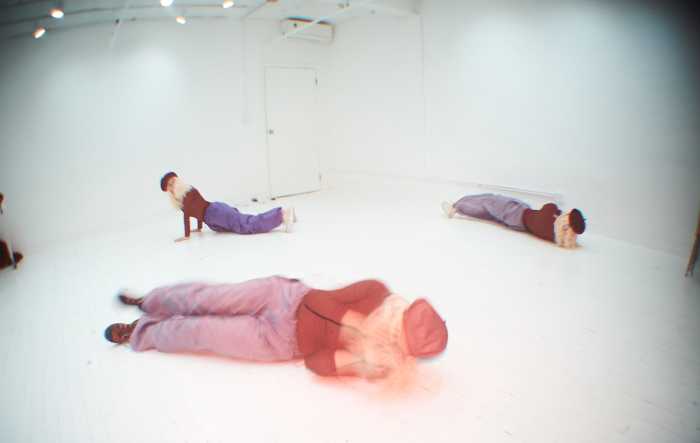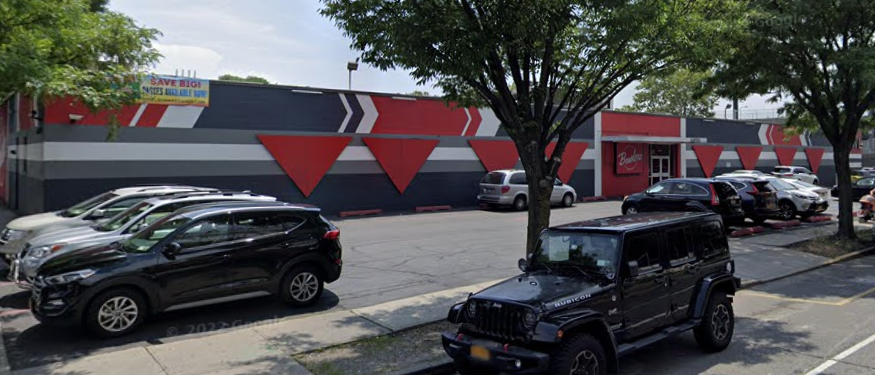Rory McAllister walked into the basement of the Flushing Library last week and was greeted by two people who asked him to take a seat. Patrons of the library checked out books on the floor above but McAllister wasn’t there for literature.
He was there for court.
McAllister was one of the first respondents to defend a summons in front of the Office of Trials and Administrative Hearings’ pop-up court in the Flushing Branch of the Queens Library on June 20. The one-day court was created to make responding to low-level summonses — like putting trash out on the wrong day or obstructing the sidewalk — easier, more convenient and, in some ways, more enjoyable.
Inside the makeshift courtroom, the judge asked McAllister if he would swear to tell the truth while defending a summons he received from the sanitation department a few weeks earlier. With a serious look, he swore he would.
The judge looked up and smiled.
“I don’t do it formally,” the judge said. “It’s a medieval practice.”
This is no ordinary judge and this is no ordinary court room.
“We love the idea of bringing court to people,” said John Castelli, deputy commissioner at OATH. “It’s been a tremendous success.”
The Flushing pop-up court heard 14 cases and resolved 16 summonses by the end of its seven-hour run.
Responding to a summons in pop-up court isn’t very different procedurally than responding to one at an OATH office. Respondents check in, wait, meet with a hearing officer, defend their case, leave and receive a decision by mail within 30 days.
What is different, however, is everything else. Respondents get more one-on-one attention, a more relaxed environment and less time taken away from their day and their work, Castelli said. They also get a free tote bag, decorated with OATH’s logo.
McAllister lives in Flushing and said that it didn’t take him very long to get to the library. After arriving, he only waited several minutes before seeing the hearing officer, Bradley Lamel. He sat down with Lamel at 9:26 a.m.
McAllister explained to Lamel that the only reason he put out his trash an hour before the law allows was because he was on his way to see a dying friend. He wasn’t sure how late he’d get back home and wanted to make sure the trash was picked up the next day. McAllister was a retired sanitation worker himself. He wasn’t trying to cause anyone any problems.
Lamel listened, asked a few follow up questions, offered his condolences and thanked McAllister for telling his story and for coming in.
McAllister was out the door and done with his hearing at 9:31, a whole five minutes later.
“That was speedy,” McAllister said, free tote bag in hand.
Statistically, it’s likely that McAllister’s summons gets dismissed. According to OATH, around 50 percent of respondents end up not having to pay the fine originally imposed on them. But if a respondent doesn’t show up to argue their summons, fines will increase and will have to be paid.
By bringing the court to the respondents and putting them in less intimidating spaces, OATH is helping to ensure that people show up, they say.
Castelli and Marisa Senigo, also a deputy commissioner at OATH, created the pop-up courts for one purpose.
“We have one goal: to ensure due process,” Castelli said
The first neighborhood pop-up court was held in the Bronx in April 2018. Since then, 15 have been held across the city, three of which were held in Queens. Last week’s court was the first to appear in the Flushing area.
“Please continue them,” said Sol Concepcion, a respondent from Elmhurst. “It was super easy.”
Concepcion had received a summons because there was loose debris in front of the building she and her husband manage, the Sanitation Department charged.
Had the pop-up court not come to Flushing, Concepcion said, the summons would have caused her a much bigger headache.
“Originally, my hearing was supposed to be on July 5, but we were going to be on vacation,” Concepcion said. “When I went online to see if I could change the date, I saw the posting and it was perfect.”
Based on the successes of the pop-up court, it’s likely they continue. They cost very little for OATH to host one – the only cost being the price of the postage stamps they use to send out announcements to respondents, they say.
Respondents said they hope there are more pop-ups in Queens, even if they also hope they don’t get any more summonses.
“People tend to show up in better moods,” said Lamel, who was making his third appearance as a hearing officer in pop-up court. “It’s great because people appreciate it.”

